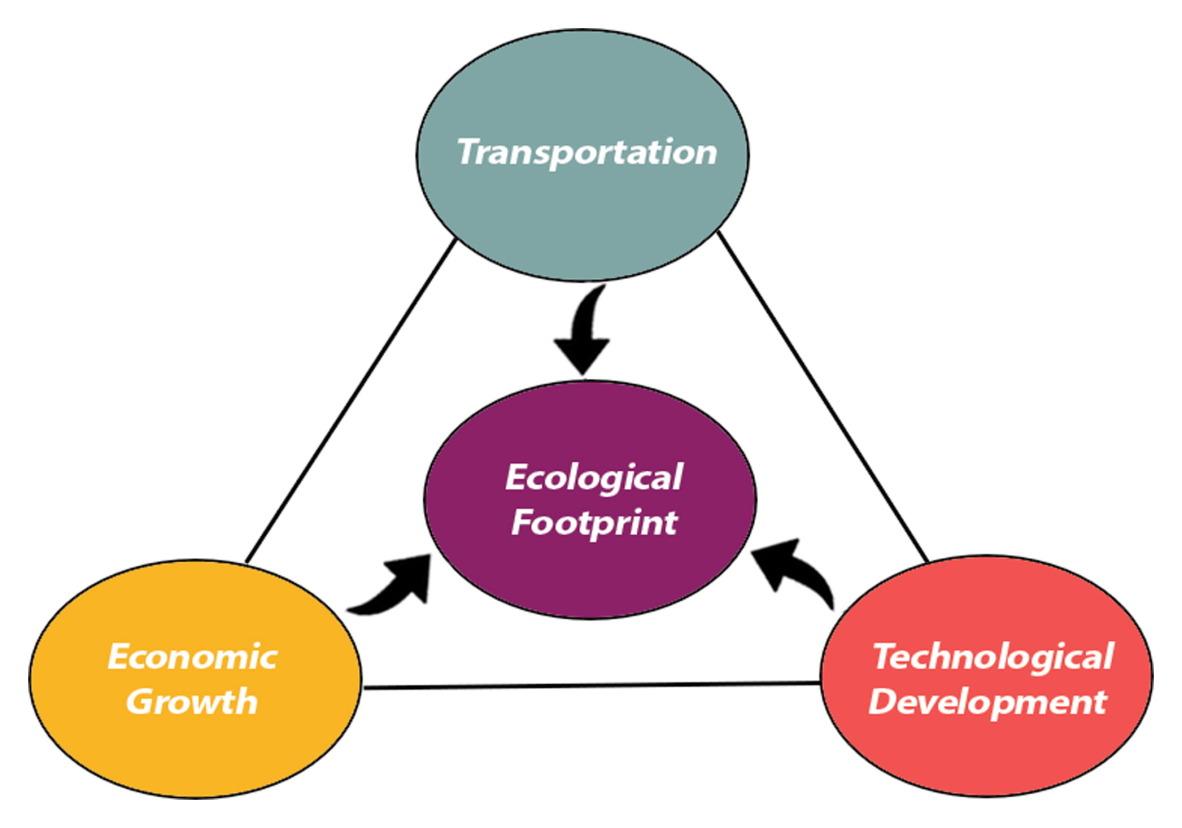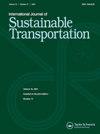探索生态足迹的驱动因素:道路交通基础设施、运输税和环境技术的影响
IF 3.1
3区 工程技术
Q2 ENVIRONMENTAL STUDIES
International Journal of Sustainable Transportation
Pub Date : 2024-11-04
DOI:10.1080/15568318.2024.2423726
引用次数: 0
摘要
本研究采用同步、鲍威尔和矩量分位数回归(MMQR)三种分位数回归技术,探讨了道路交通基础设施、运输税、经济增长、贸易开放和环境技术对生态足迹的动态影响。选择这些变量是因为它们对经济成果和环境可持续性都有重大影响,反映了交通系统、政府政策和技术进步在形成生态影响方面的相互联系。基于1995年至2020年间19个欧洲国家的面板数据,结果表明,道路基础设施投资和更高的运输税有助于减少生态足迹。在中、高分位数上,环境相关技术的进步进一步减少了生态足迹,而贸易开放则倾向于恶化生态质量。重要的是,GDP与生态足迹之间的关系呈倒u形,在所有分位数上证实了环境库兹涅茨曲线(EKC)假设,这表明经济增长可以长期支持环境可持续性。这些发现通过使用完全修正的普通最小二乘(FMOLS)、动态普通最小二乘(DOLS)和典型协整回归(CCR)模型进行稳健性检查来验证。关键的政策影响包括需要有针对性地投资道路基础设施和运输税战略,根据各国国情,以及技术驱动的战略,以遏制环境退化。最后,面板因果检验揭示了经济增长、道路交通基础设施和环境相关技术对生态足迹的单向因果关系,突出了它们作为环境改善的短期贡献者的重要性。本文章由计算机程序翻译,如有差异,请以英文原文为准。

Exploring the drivers of ecological footprint: Impacts of road transportation infrastructure, transport tax, and environment technologies
This study explores the dynamic effects of road transportation infrastructure, transport taxes, economic growth, trade openness, and environmental technologies on the ecological footprint using three quantile regression techniques: Simultaneous, Powell, and Method of Moments Quantile Regression (MMQR). These variables are selected for their significant influence on both economic outcomes and environmental sustainability, reflecting the interconnectedness of transportation systems, government policies, and technological advancements in shaping ecological impacts. Based on panel data from 19 European countries between 1995 and 2020, the results reveal that investments in road infrastructure and higher transport taxes contribute to reducing ecological footprint. At the middle and high quantiles, advancements in environment-related technologies further decrease the ecological footprint, whereas trade openness tends to worsen ecological quality. Importantly, the relationship between GDP and the ecological footprint follows an inverted U-shape, confirming the Environmental Kuznets Curve (EKC) hypothesis across all quantiles, which suggests that economic growth can support environmental sustainability in the long run. These findings are validated by robustness checks using fully modified ordinary least squares (FMOLS), dynamic ordinary least squares (DOLS), and canonical cointegration regression (CCR) models. Key policy implications include the need for targeted investments in road infrastructure and transport tax strategies, tailored to national contexts, along with technology-driven strategies to curb environmental degradation. Lastly, the panel causality test reveals unidirectional causality from economic growth, road transportation infrastructure, and environment-related technologies to ecological footprint, highlighting their significance as short-term contributors to environmental improvement.
求助全文
通过发布文献求助,成功后即可免费获取论文全文。
去求助
来源期刊
CiteScore
8.90
自引率
2.60%
发文量
56
期刊介绍:
The International Journal of Sustainable Transportation provides a discussion forum for the exchange of new and innovative ideas on sustainable transportation research in the context of environmental, economical, social, and engineering aspects, as well as current and future interactions of transportation systems and other urban subsystems. The scope includes the examination of overall sustainability of any transportation system, including its infrastructure, vehicle, operation, and maintenance; the integration of social science disciplines, engineering, and information technology with transportation; the understanding of the comparative aspects of different transportation systems from a global perspective; qualitative and quantitative transportation studies; and case studies, surveys, and expository papers in an international or local context. Equal emphasis is placed on the problems of sustainable transportation that are associated with passenger and freight transportation modes in both industrialized and non-industrialized areas. All submitted manuscripts are subject to initial evaluation by the Editors and, if found suitable for further consideration, to peer review by independent, anonymous expert reviewers. All peer review is single-blind. Submissions are made online via ScholarOne Manuscripts.

 求助内容:
求助内容: 应助结果提醒方式:
应助结果提醒方式:


